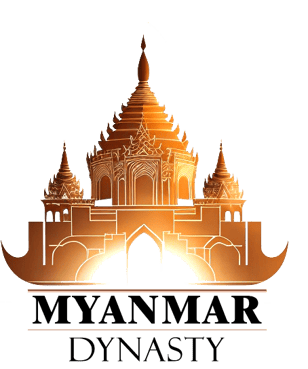Rules and Regulations for Investing in Myanmar
Investing in Myanmar involves compliance with a well-defined set of rules and regulations aimed at ensuring transparency, protecting investors, and promoting sustainable development. Below is a detailed guide to understanding the key legal and regulatory frameworks that govern investments in the country.


Governing Bodies
Myanmar Investment Commission (MIC)
The MIC is the principal authority overseeing investment-related activities.
It is responsible for approving large-scale investment projects, providing investment incentives, and ensuring compliance with Myanmar’s laws.
Special Economic Zone Authorities
For investments in SEZs, specific zone management committees oversee regulatory compliance and provide administrative support.
Ministries and Departments
Relevant ministries regulate sector-specific investments (e.g., Ministry of Agriculture, Livestock and Irrigation for agribusiness, Ministry of Mines for mineral exploration).
Key Investment Laws
Myanmar Investment Law (MIL) (2016)
The MIL provides the legal framework for both foreign and domestic investments.
It outlines rules for investment approvals, dispute resolution, tax incentives, and land use.
Investors must apply for an MIC permit or endorsement to access tax benefits and land leases.
Companies Law (2017)
The Myanmar Companies Law governs the registration and operation of companies.
Foreigners can own up to 35% of a company while retaining the status of a "local company," enabling participation in restricted sectors.
Special Economic Zone (SEZ) Law (2014)
The SEZ Law governs investments within SEZs, offering streamlined procedures, tax incentives, and infrastructure support.
Investment Restrictions
Prohibited Activities
Investments that may harm the environment, public health, or national security are prohibited.
Certain activities, such as the production of arms and ammunition, are reserved for the government.
Restricted Activities
Investments in restricted sectors require joint ventures with local partners or special approvals. Examples include:
Agriculture and fisheries.
Media and broadcasting.
Mining and energy.
Approval from Relevant Authorities
Investments in sensitive sectors (e.g., telecommunications, banking, mining) require additional licenses and permits from respective ministries.
Company Registration
Steps to Register a Business
Reserve a company name via the Myanmar Companies Online (MyCO) portal.
Submit incorporation documents, including Articles of Association and shareholder details.
Pay the registration fee.
Receive the Certificate of Incorporation.
Registered Office Requirement
All companies must have a registered office in Myanmar.
Annual Returns
Companies must file annual returns to maintain compliance with the Companies Law.
Taxation and Compliance
Corporate Tax
The corporate tax rate is generally 25%, but exemptions and reductions may apply based on MIC approvals.
Withholding Tax
Applies to payments such as royalties, interest, and dividends paid to non-residents.
Value-Added Tax (VAT)
Myanmar imposes a commercial tax ranging from 5-15%, depending on the nature of goods and services.
Social Security Contributions
Employers must contribute to the social security fund for their employees.
Labor Laws
Employment Contracts
Employers must issue written employment contracts in the Myanmar language.
Contracts should outline terms of employment, wages, benefits, and working conditions.
Labor Dispute Resolution
Labor disputes are managed under the Settlement of Labor Disputes Law (2012).
Work Permits for Foreign Employees
Foreign workers require valid work permits and visas to work in Myanmar.
Land Use Regulations
Land Ownership
Foreign investors cannot own land but may lease land for up to 50 years, with potential extensions of 10+10 years.
Land Use Permits
Investors must obtain proper land use permits, particularly for agriculture, mining, and infrastructure projects.
Environmental Impact Assessments (EIA)
Large-scale projects require EIAs to ensure compliance with environmental regulations.
Intellectual Property Rights
Trademark and Patent Registration
The Trademark Law (2019) enables the registration of trademarks in Myanmar.
Investors should register their trademarks, patents, and copyrights to protect their intellectual property.
Foreign Exchange Regulations
Currency Restrictions
The Central Bank of Myanmar regulates the use of foreign currencies.
Transactions must generally be conducted in Myanmar Kyat (MMK), with certain exceptions for export-oriented businesses.
Profit Repatriation
Investors may repatriate profits in foreign currency after meeting all tax obligations and regulatory requirements.
Anti-Corruption and Compliance
Anti-Corruption Law (2013)
The law prohibits bribery and corruption in business dealings.
Companies must ensure compliance with anti-corruption regulations to avoid penalties.
Due Diligence
Investors are encouraged to perform thorough due diligence on potential partners, local regulations, and market conditions.
Dispute Resolution Mechanisms
Arbitration
Myanmar recognizes international arbitration under the Arbitration Law (2016).
Investors can resolve disputes using institutions such as the Singapore International Arbitration Centre (SIAC).
Judicial System
Commercial disputes can also be resolved through Myanmar’s legal system, though arbitration is preferred for efficiency.
Sector-Specific Regulations
Banking and Finance
Investments in banking require a license from the Central Bank of Myanmar.
Telecommunications
The Ministry of Transport and Communications regulates telecommunications investments.
Mining
Mining licenses and permits must be obtained from the Ministry of Mines.
Compliance with Local Laws
Adherence to Regional and Local Laws
Investors must comply with both national and regional regulations, particularly for land use and environmental protection.
Community Engagement
Projects impacting local communities must include community engagement plans to align with Myanmar’s social and environmental standards.
Conclusion
Myanmar's rules and regulations for investors are designed to create a balanced, transparent, and secure investment environment. While compliance with these regulations may require meticulous planning and legal guidance, they offer robust protections and opportunities for investors.
Sustainability
Unlocking Myanmar's mineral potential with innovation.
Mining
Energy
info@myanmardynasty.com.mm
+959-5010-888, +95 99 40 88 22 00
© 2024. All rights reserved.
